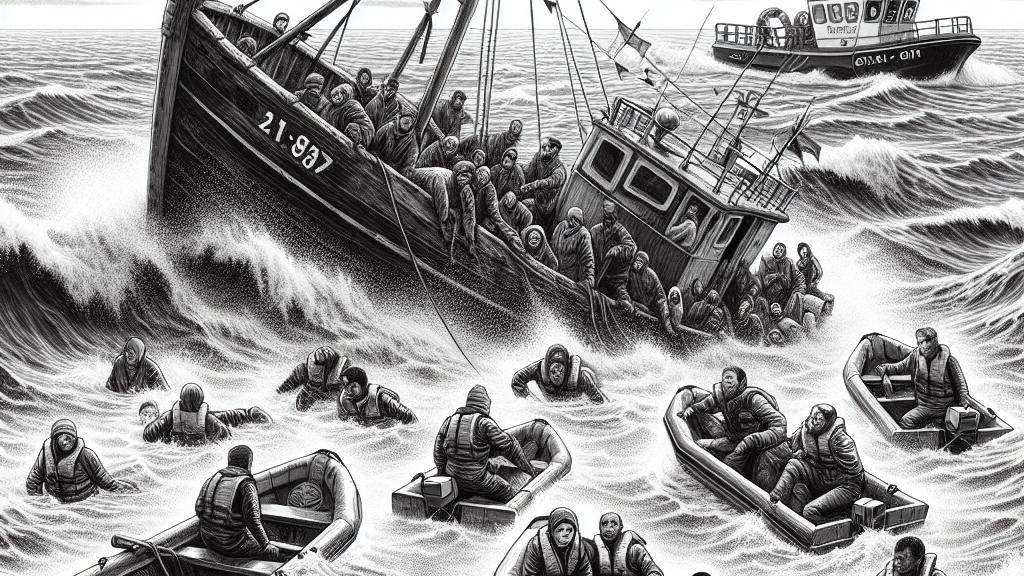Tragedy at Sea: Migrant Boat Sinks in English Channel, Dozens Feared Dead!
Overview
- At least 13 migrants confirmed dead after a boat capsized off the northern coast of France.
- Ongoing rescue operations have saved 61 individuals, but many others remain missing.
- This tragedy underscores the urgent need for better protection and safer migration pathways for vulnerable populations.

A Heartbreaking Maritime Disaster
On September 3, 2024, tragedy struck off the northern coast of France when a migrant boat, attempting to navigate the treacherous waters of the English Channel, capsized, resulting in the confirmed deaths of at least 13 people. Olivier Barbarin, the mayor of Le Portel, described the incident as 'a big drama' and indicated that the boat was compromised, leading many to fall into the cold and turbulent sea. Efforts by local authorities and maritime rescue teams were able to save 61 individuals, but the loss of life and the number of missing migrants highlight the grave dangers associated with these risky crossings. The International Organization for Migration reported that over 30 migrants have died or are unaccounted for in similar crossings this year alone, shedding light on a humanitarian crisis that continues to unfold.
The Growing Perils of Migrant Crossings
This tragedy is part of a broader trend in which escalating numbers of migrants risk their lives attempting to cross the English Channel, driven by desperation and dire circumstances in their home countries. With increasing numbers fleeing war, persecution, and poverty, the channel has become a battleground of sorts, where the perilous journey is often facilitated by human traffickers who operate under dubious legal frameworks. Strict immigration laws in Europe have led many to seek alternative, dangerous paths, making them vulnerable to the whims of the sea and unseaworthy vessels designed for such perilous voyages. Reports indicate that thousands of individuals have recently undertaken this hazardous journey, with rising fatalities underscoring the urgent need for comprehensive approaches to address the root causes of migration.
Urgent Actions and Humanitarian Responsibility
In the wake of this tragic event, leaders in both France and the U.K. have expressed their condolences and a call for urgent action. They recognize that to stem the tide of migrant deaths, there must be an institutional commitment to developing humane, effective policies that address the root issues of displacement while ensuring the safety and dignity of individuals seeking refuge. Critically, this means pushing for international cooperation to create safer migration channels and providing adequate support systems for migrants in transit. Without these substantive changes, the seas may continue to be graveyards for those seeking safety from persecution and violence, making it imperative for the global community to prioritize human rights and compassionate responses in the face of this ongoing crisis.

Loading...